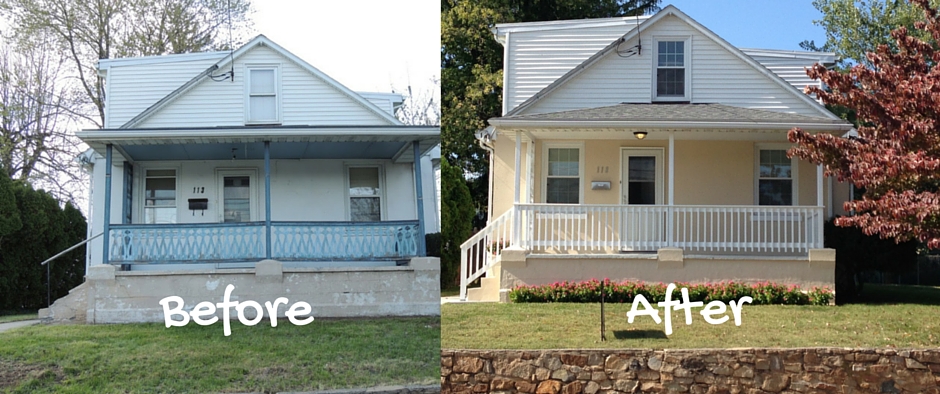
To obtain a New York real-estate license, you must meet certain requirements. The process usually takes a few months and is a great start to your real-estate career.
How to become an NY Real Estate Agent
A pre-licensing program is required to become a licensed realty agent. This is required in the state. You can take it at an accredited school or online. It is recommended to choose a course provider with a proven track record and excellent customer service.
After completing the pre-licensing program, you must pass a school exam. This exam will be taken by your education provider either in-person, or online. It will assess your knowledge and understanding of the course material. Minimum passing score is 70%

After passing the school exam you can schedule the New York State Real Estate salesperson Exam. This exam is multi-choice and takes about 1.5 hours. It requires a 70% pass rate. The exam is administered through eAccessNY, the New York State licensing management system.
How to Get Your Real Estate License.
Once you have completed the pre-licensing class and passed the school examination, you can apply to the New York Department of State for your license. The application can be submitted online via eAccessNY. It must include fingerprints and a background check. Your application fee, as well as fees, will need to be paid. The application fee costs $55 and the exam fee $15.
How to become an NY broker
After you have passed the school exam and have a license, you will need to work under a supervising broker until you have gained experience and are ready to get your own business off the ground. This will help build your brand and give you the network and skills that will make this an industry success.
To become a broker, you must have at least two years of sales experience. To be eligible for a New York broker's license, you must have at least three years of experience in general real estate.

How to Become a Real estate Agent in NYC
There are many lucrative opportunities available for real-estate agents in NYC. However, it can be a challenging and competitive field to break into. You must have excellent customer service skills and a strong network to succeed in this market.
To do this, you will need to find a supervising broker who will guide you through the real estate licensing and exam process. This person will act as your mentor as you learn and grow as a professional broker.
FAQ
Is it possible fast to sell your house?
It might be possible to sell your house quickly, if your goal is to move out within the next few month. You should be aware of some things before you make this move. You must first find a buyer to negotiate a contract. Second, prepare the house for sale. Third, you need to advertise your property. Finally, you need to accept offers made to you.
What amount of money can I get for my house?
This varies greatly based on several factors, such as the condition of your home and the amount of time it has been on the market. Zillow.com shows that the average home sells for $203,000 in the US. This
Do I need a mortgage broker?
A mortgage broker can help you find a rate that is competitive if it is important to you. Brokers have relationships with many lenders and can negotiate for your benefit. Brokers may receive commissions from lenders. Before signing up, you should verify all fees associated with the broker.
Is it better to buy or rent?
Renting is usually cheaper than buying a house. However, you should understand that rent is more affordable than buying a house. A home purchase has many advantages. You will have greater control of your living arrangements.
What are the most important aspects of buying a house?
The three main factors in any home purchase are location, price, size. It refers specifically to where you wish to live. Price refers to what you're willing to pay for the property. Size refers to the space that you need.
Should I rent or purchase a condo?
Renting is a great option if you are only planning to live in your condo for a short time. Renting will allow you to avoid the monthly maintenance fees and other charges. The condo you buy gives you the right to use the unit. You can use the space as you see fit.
Statistics
- Private mortgage insurance may be required for conventional loans when the borrower puts less than 20% down.4 FHA loans are mortgage loans issued by private lenders and backed by the federal government. (investopedia.com)
- The FHA sets its desirable debt-to-income ratio at 43%. (fortunebuilders.com)
- It's possible to get approved for an FHA loan with a credit score as low as 580 and a down payment of 3.5% or a credit score as low as 500 and a 10% down payment.5 Specialty mortgage loans are loans that don't fit into the conventional or FHA loan categories. (investopedia.com)
- Based on your credit scores and other financial details, your lender offers you a 3.5% interest rate on loan. (investopedia.com)
- When it came to buying a home in 2015, experts predicted that mortgage rates would surpass five percent, yet interest rates remained below four percent. (fortunebuilders.com)
External Links
How To
How to Manage a Property Rental
It can be a great way for you to make extra income, but there are many things to consider before you rent your house. This article will help you decide whether you want to rent your house and provide tips for managing a rental property.
Here are the basics to help you start thinking about renting out a home.
-
What should I consider first? Consider your finances before you decide whether to rent out your house. If you have outstanding debts like credit card bills or mortgage payment, you may find it difficult to pay someone else to stay in your home while that you're gone. Also, you should review your budget to see if there is enough money to pay your monthly expenses (rent and utilities, insurance, etc. It may not be worth it.
-
How much does it cost to rent my home? The cost of renting your home depends on many factors. These factors include the location, size and condition of your home, as well as season. Prices vary depending on where you live so it's important that you don't expect the same rates everywhere. Rightmove estimates that the market average for renting a 1-bedroom flat in London costs around PS1,400 per monthly. This means that your home would be worth around PS2,800 per annum if it was rented out completely. Although this is quite a high income, you can probably make a lot more if you rent out a smaller portion of your home.
-
Is it worth the risk? Although there are always risks involved in doing something new, if you can make extra money, why not? Make sure that you fully understand the terms of any contract before you sign it. Your home will be your own private sanctuary. However, renting your home means you won't have to spend as much time with your family. You should make sure that you have thoroughly considered all aspects before you sign on!
-
Are there benefits? You now know the costs of renting out your house and feel confident in its value. Now, think about the benefits. Renting out your home can be used for many reasons. You could pay off your debts, save money for the future, take a vacation, or just enjoy a break from everyday life. It's more fun than working every day, regardless of what you choose. Renting could be a full-time career if you plan properly.
-
How can I find tenants Once you've made the decision that you want your property to be rented out, you must advertise it correctly. You can start by listing your property online on websites such as Rightmove and Zoopla. Once you receive contact from potential tenants, it's time to set up an interview. This will enable you to evaluate their suitability and verify that they are financially stable enough for you to rent your home.
-
How can I make sure that I'm protected? You should make sure your home is fully insured against theft, fire, and damage. In order to protect your home, you will need to either insure it through your landlord or directly with an insured. Your landlord will often require you to add them to your policy as an additional insured. This means that they'll pay for damages to your property while you're not there. However, this doesn't apply if you're living abroad or if your landlord isn't registered with UK insurers. In these cases, you'll need an international insurer to register.
-
Even if your job is outside the home, you might feel you cannot afford to spend too much time looking for tenants. But it's crucial that you put your best foot forward when advertising your property. Post ads online and create a professional-looking site. You'll also need to prepare a thorough application form and provide references. While some people prefer to handle everything themselves, others hire agents who can take care of most of the legwork. Either way, you'll need to be prepared to answer questions during interviews.
-
What happens once I find my tenant If there is a lease, you will need to inform the tenant about any changes such as moving dates. Otherwise, you can negotiate the length of stay, deposit, and other details. Remember that even though you will be paid at the end of your tenancy, you still have to pay utilities.
-
How do you collect the rent? When the time comes for you to collect the rent you need to make sure that your tenant has been paying their rent. If not, you'll need to remind them of their obligations. You can subtract any outstanding rent payments before sending them a final check. If you're having difficulty getting hold of your tenant you can always call police. They won't normally evict someone unless there's been a breach of contract, but they can issue a warrant if necessary.
-
How can I avoid problems? Renting out your house can make you a lot of money, but it's also important to stay safe. Make sure you have carbon monoxide detectors installed and security cameras installed. Make sure your neighbors have given you permission to leave your property unlocked overnight and that you have enough insurance. Finally, you should never let strangers into your house, even if they say they're moving in next door.